Florida Rental Agreement
 Lease Agreement Template_1 on iPropertyManagement.com" width="1224" height="1584" />
Lease Agreement Template_1 on iPropertyManagement.com" width="1224" height="1584" />
A Florida rental agreement is a legal contract where one party (the “landlord”) lets another party (the “tenant”) use a property in exchange for regular (usually monthly) payments of rent. The terms of a rental agreement must agree with Florida’s legal standards to be valid and enforceable.
Florida Rental Agreement Types
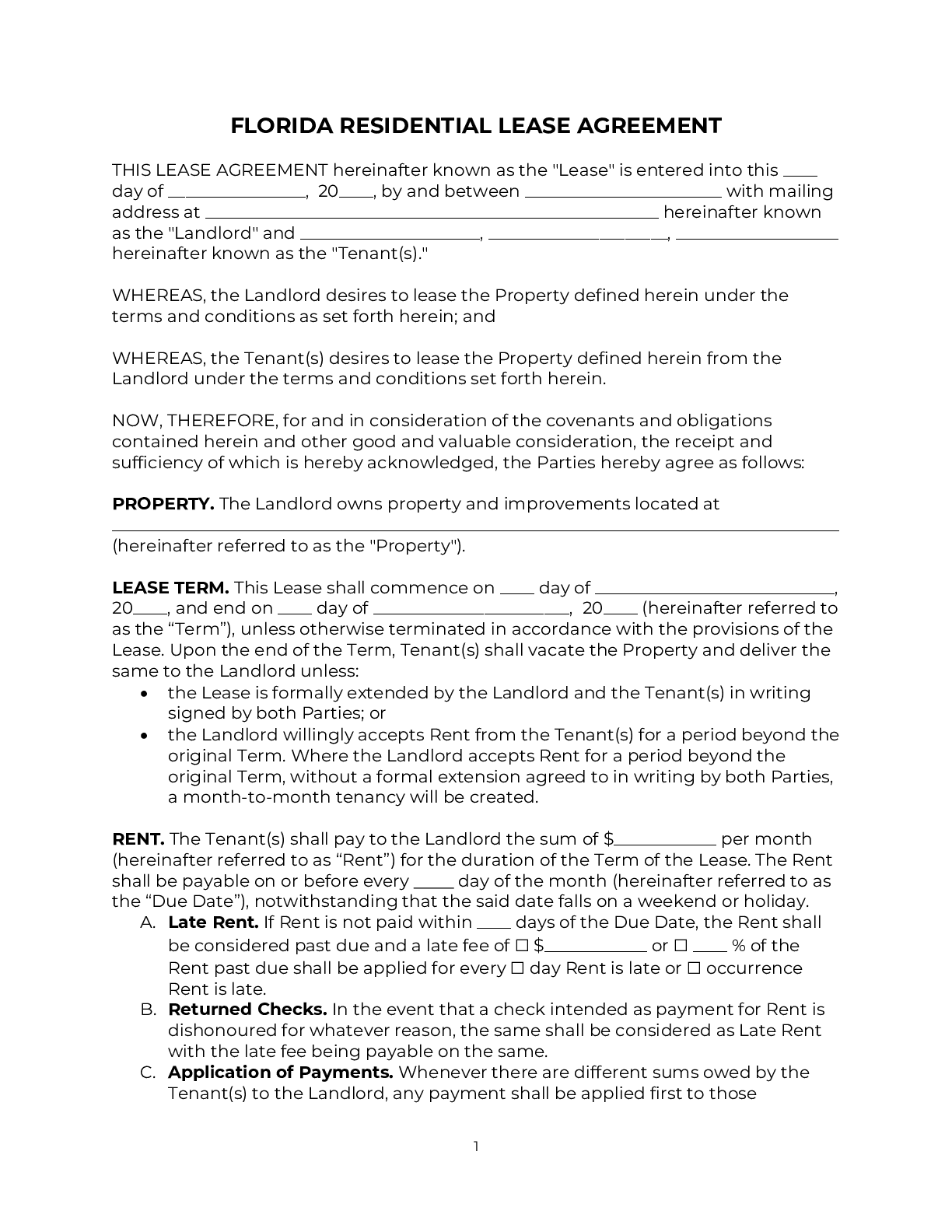
The Florida residential lease agreement (“rental agreement”) is a legal contract for a tenant to use a residential property in exchange for a regular rental fee, subject to the terms and conditions agreed by all parties.
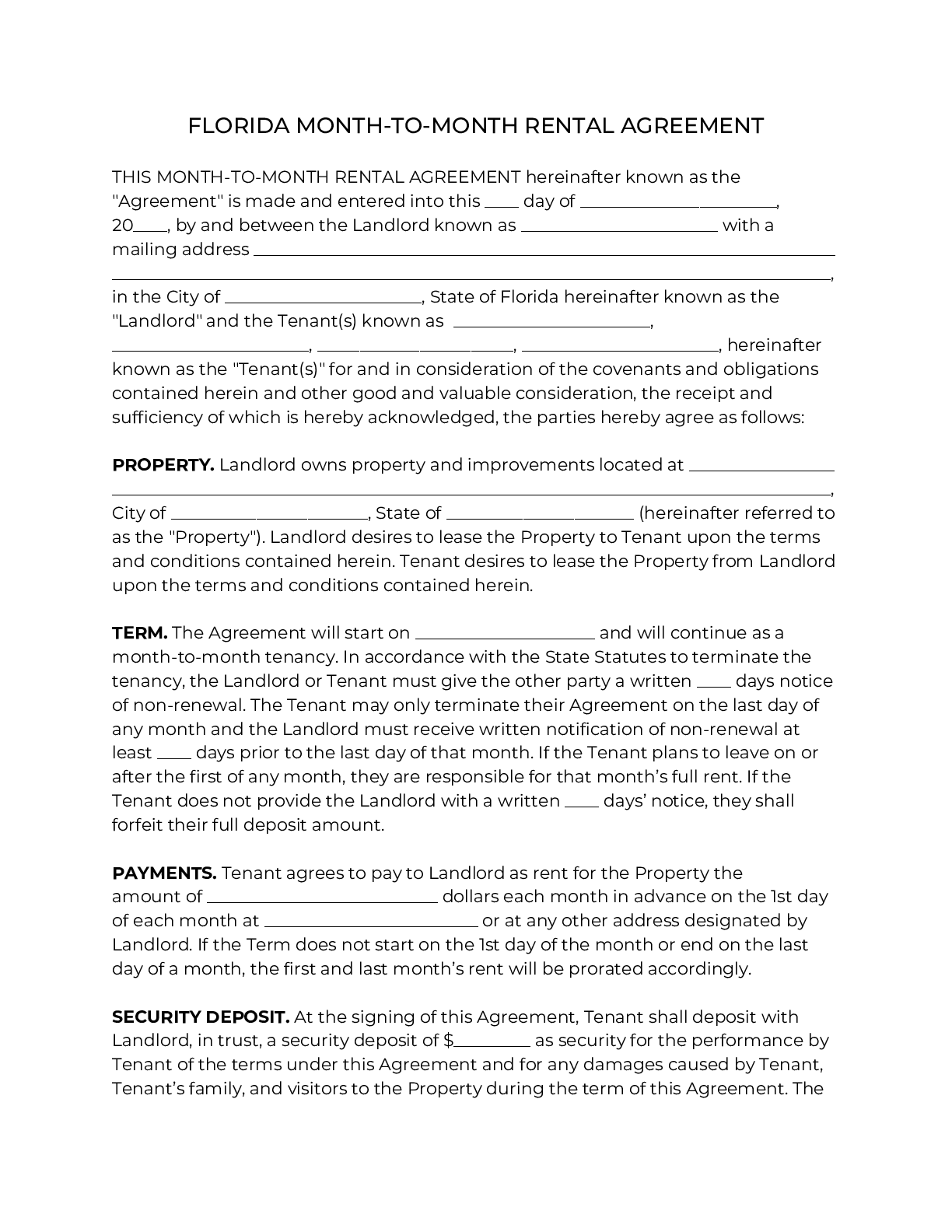
A Florida month-to-month lease agreement is a contract (not necessarily written) where a tenant pays to rent property from a landlord. The contract lasts for one month, and is renewable on a month-to-month basis.
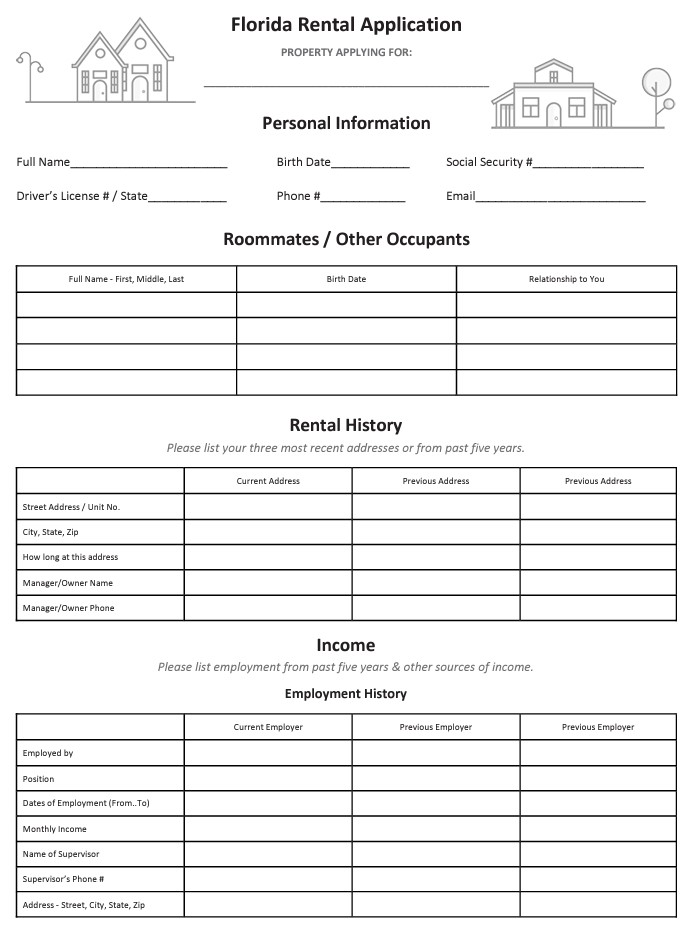
In Florida, a rental application form is a document landlords use to screen prospective tenants and help determine whether they make a good fit for the property and the landlord’s rental terms.
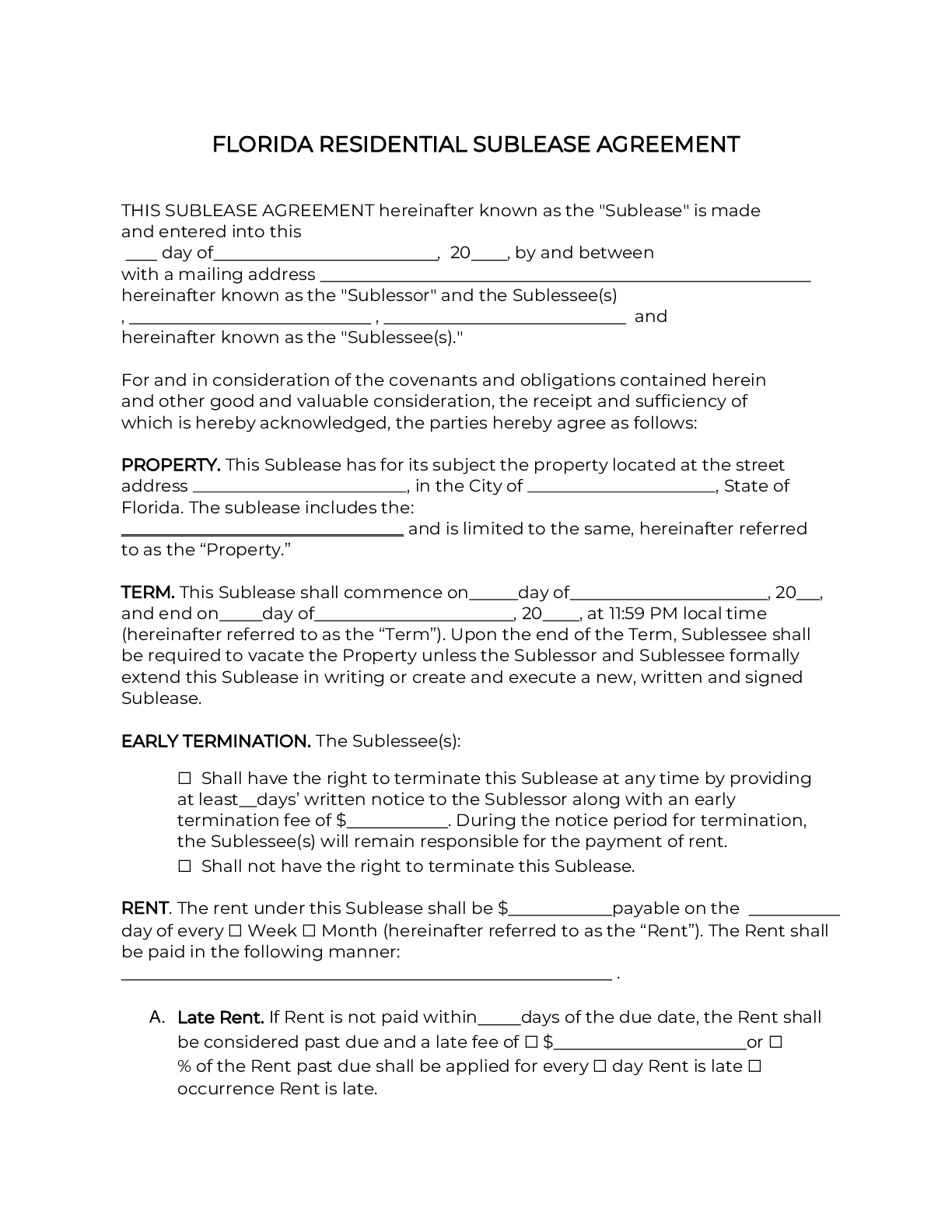
A Florida sublease agreement is a legal contract where the property rented by an exisiting tenant ("sublessor") gets rented (“subleased”) to a new tenant ("sublessee"), usually after the landlord gives permission.
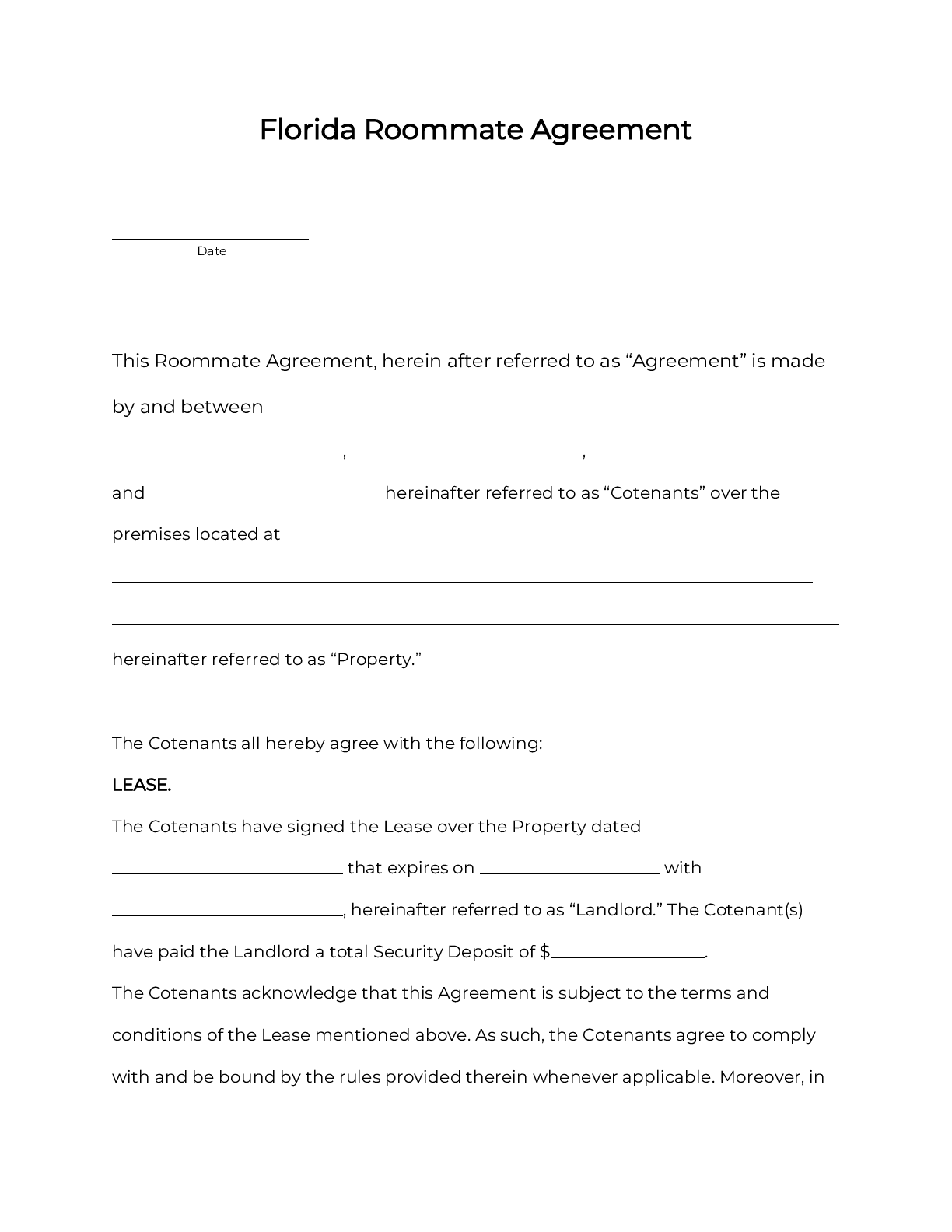
A Florida roommate agreement (“room rental agreement”) is a legal contract between two or more people (“co-tenants”) who share a rental property according to rules they set, including things like splitting rent. This agreement binds the co-tenants living together, and doesn’t include the landlord.
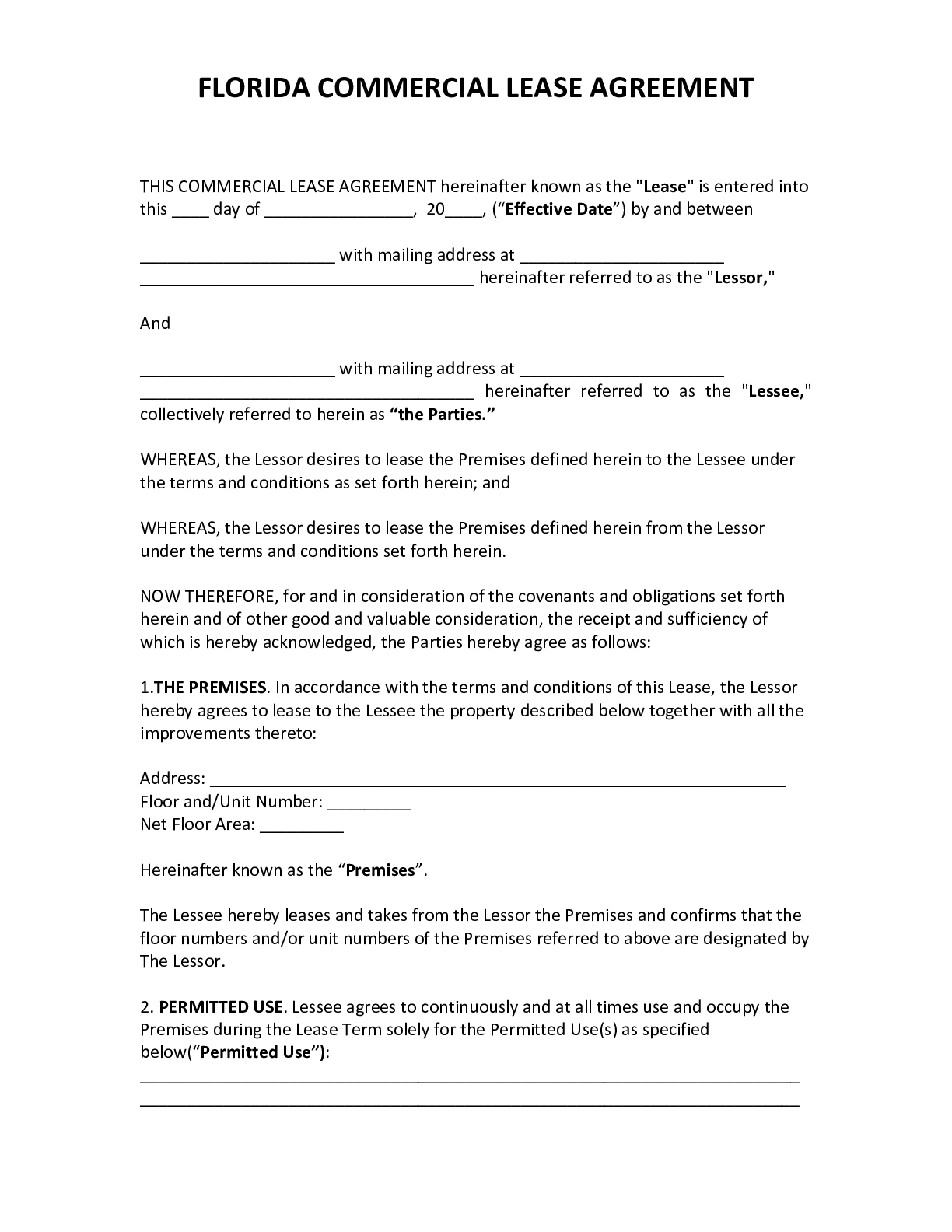
A Florida commercial lease agreement is a contract specifically for a business to rent commercial space.
Common Rental Agreements in Florida
- The Florida Bar’s Residential Lease (Single Family Home/Duplexes) – The Florida Bar provides this easy-to-read template, suitable to rent single-family homes or duplexes, for periods that do not exceed one year. The lease outlines landlord-tenant laws, and also includes an addendum covering fees for early termination and related matters.
- The Florida Bar’s Residential Lease (Apartments/Multi-Family) – The Florida Bar provides this template, to rent apartments, condominiums, cooperatives, or multi-family housing for a period of up to one year. It provides an extensive list of rules and procedures, including an overnight guest policy.
Florida Required Lease Disclosures
- Landlord’s Name and Address(required for all leases) – Florida landlords must provide tenants with contact information of anyone authorized to act on behalf of the property. This guarantees tenants can pay rent and give the landlord legal notice about issues as necessary.
- Dangers of Radon Gas(required for all leases) – Florida leases must disclose potential dangers of radon gas on the property to help protect tenants.
- Security Deposit Holdings(required for some leases) – When a Florida landlord manages 5 or more individual rental units, he must disclose where any security deposit is held, any information about accruing interest, and give the tenant a specific state-provided notice about handling of security deposits.
- Lead-Based Paint Disclosure(required for some leases) – To protect prospective tenants, every Florida lease must include an EPA-approved lead-based paint disclosure form regarding the dangers of lead paint in addition to other known hazards which may exist on the rental property.
To learn more about required disclosures in Florida, click here.
Some cities have required and recommended disclosures that differ from Florida law, with one notable example being Jacksonville.
Florida Landlord Tenant Laws
- Warranty of Habitability – Florida landlords must provide adequate plumbing, running water, electrical lighting, and more, for any rental property. The landlord must also repair these features within seven days of proper notice from the tenant. The tenant otherwise can terminate the lease, or sue the landlord.
- Evictions – Florida landlords may evict for a number of reasons including, but not limited to: failure to pay rent, lease violation, or illegal acts. The process can take anywhere from around a week to a few months, depending on whether the landlord must give the tenant a chance to fix the situation.
- Security Deposits – Florida places no limit on what a landlord can charge as a security deposit. Once a tenant moves out of rental property, a landlord has 15 days to return a security deposit, 30 days if making any deductions.
- Lease Termination – Month-to-month leases in Florida require 15 days of advance notice for termination. To terminate a fixed-term lease without penalty, a tenant must prove active military duty, uninhabitable rental property, landlord harassment, or the landlord’s violation of a specific lease term.
- Rent Increases and Fees – Florida landlords do not need to provide advance notice before increasing the rent. There’s no limit to the amount of a rent increase. Late fees are capped at the greater of $20 or 20% of the rental payment, plus reasonable costs related to collections. [1] Bounced check fees are limited to either $25, $30, $40, or 5% of the check (depending on the amount).
- Landlord Entry – A Florida landlord must usually provide at least 24 hours of advance notice before entry, and must enter at a reasonable time (between the hours of 7:30AM and 8:00PM). These rules don’t apply in emergencies, or as agreed in writing by the landlord and tenant.
- Settling Legal Disputes – In Florida, rental disputes (including evictions) valued at up to $8,000 may be filed in small claims court. Such cases are subject to a 5-year and 4-year statute of limitations for written and oral contracts, respectively.
To learn more about landlord tenant laws in Florida, click here .
Sources
A facility or unit owner may charge a tenant a reasonable late fee for each period that he or she does not pay rent due under the rental agreement. The amount of the late fee and the conditions for imposing such fee must be stated in the rental agreement or in an addendum to such agreement. For purposes of this subsection, a late fee of $20, or 20 percent of the monthly rent, whichever is greater, is reasonable and does not constitute a penalty. In addition to late fees, a facility or unit owner may also charge a tenant a reasonable fee for any expenses incurred as a result of rent collection or lien enforcement.

 Lease Agreement Template_1 on iPropertyManagement.com" width="1224" height="1584" />
Lease Agreement Template_1 on iPropertyManagement.com" width="1224" height="1584" /> Lease Agreement Template_1 on iPropertyManagement.com" width="1224" height="1584" />
Lease Agreement Template_1 on iPropertyManagement.com" width="1224" height="1584" />




